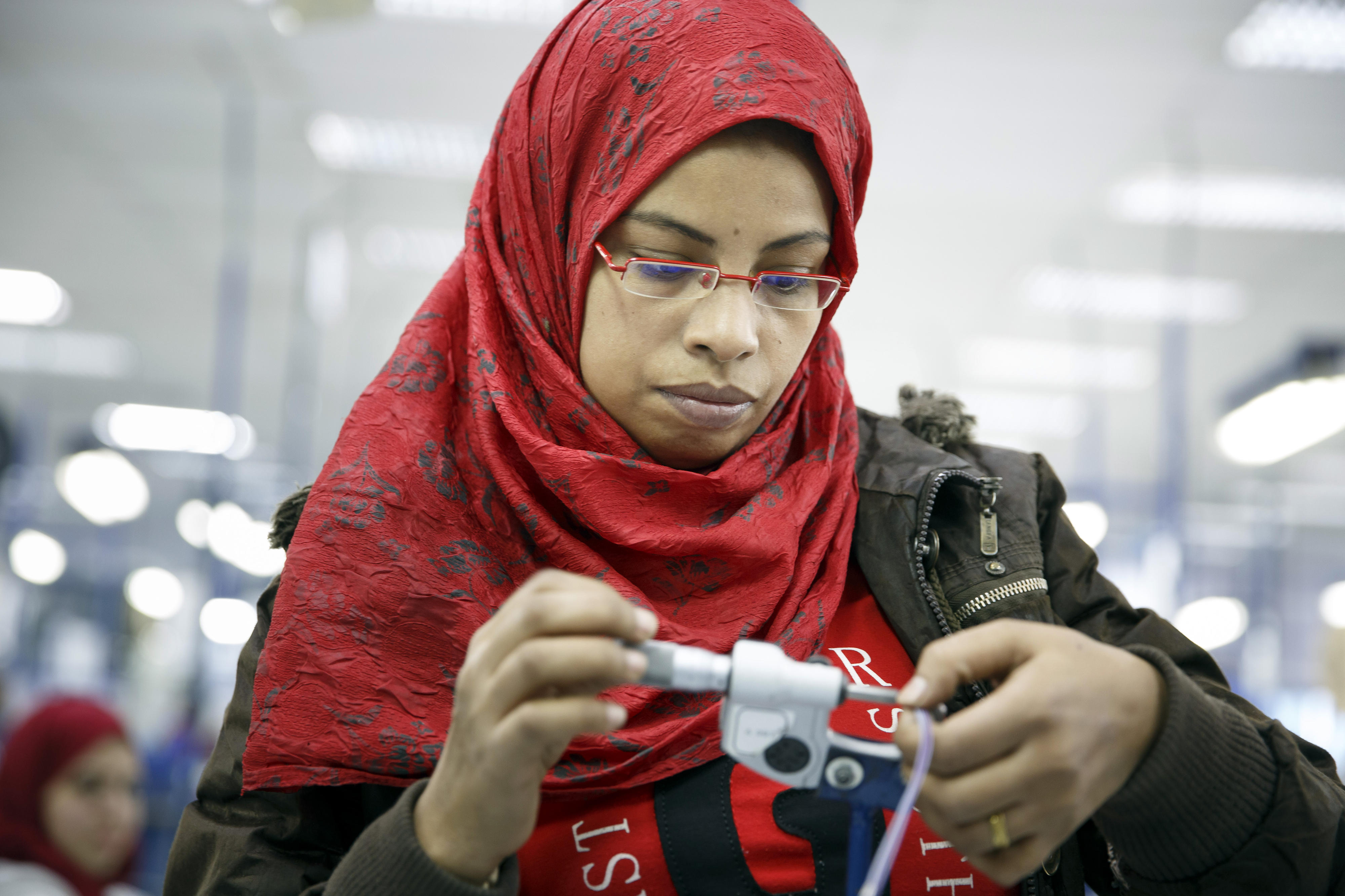Core area “Sustainable Economic Development, training and employment” Needs-based training and employment for young people
In order to create more jobs, German development cooperation activities are fostering growth of small and medium-sized companies and new start-ups. This also involves incentives that drive the socio-ecological transformation of the Egyptian economy, in particular by fostering green innovations in companies. The private sector in Egypt is to play a role in reducing poverty and creating prosperity and is to become climate friendly and environmentally sound in the long term.
Further developing Egypt’s vocational training system – including to facilitate regular labour migration
Apprentice at the Leoni Company in Cairo
Availability of well-trained skilled workers is key to high employment rates and a competitive, sustainable economy. That is why German development cooperation activities are supporting Egypt’s vocational training reform “Technical Education 2.0” with a view to systematically improving the quality of vocational training. There is a special emphasis on quality management for vocational schools, on basic and further training for teachers and on targeted support for women.
The Egyptian government also attaches great importance to a “dual” (industry-based and school-based) vocational education system modelled on the German system. This system was introduced in Egypt with support from German development cooperation. It is to be extended, in particular by establishing and equipping competence centres for dual education. These centres will serve as innovation hubs for vocational training in high-growth sectors that are vital for the future and share its expertise within a network of partner schools. The private sector will be actively involved so as to ensure that the curricula taught are in line with the actual needs of the labour market.
In addition, German development cooperation is placing new emphasis on making use of the reformed vocational training system to support regular labour migration, especially to Germany. Steps are to be taken to make the training programmes for selected occupations more compatible with international standards by, for instance, adjusting relevant curricula. The centre for migration and development in Cairo, which is funded under the development cooperation programme, plays a key role in that. It provides advisory services to people who are interested in migrating and develops partnerships that focus on migration for the purpose of work or training with German companies and associations. This is also in the interest of the Egyptian government which wants to open up more job opportunities abroad for its people in response to the tense economic situation in the country. In addition, Egypt can benefit from remittances and the expertise of returning skilled workers.
Supporting companies in efforts to create jobs and climate-friendly investment
Small, micro and medium-sized businesses make a substantial contribution to Egypt's economic output. However, their potential to create new jobs is not being utilised to the full, partly because many enterprises lack access to suitable financial services. That is why German development cooperation is supporting Egyptian financial institutions in their efforts to make credit lines available for small, micro and medium-sized enterprises. In doing so it provides specific incentives for companies to invest in inclusive, resource-efficient and low-GHG technologies and practices.
The focus is on green innovations that make companies more resilient against climate change or contribute to making entrepreneurial activity more sustainable, for example by saving energy and reducing carbon dioxide emissions. In addition, credit lines are used to incentivise employment and entrepreneurial activity – especially among women.
German development cooperation measures are also supporting Egyptian start-ups in their efforts to develop viable business models and improve their financial management in order to become eligible for support from investors. It also cooperates directly with companies to create jobs that offer people decent employment.
As at: 18/07/2025
